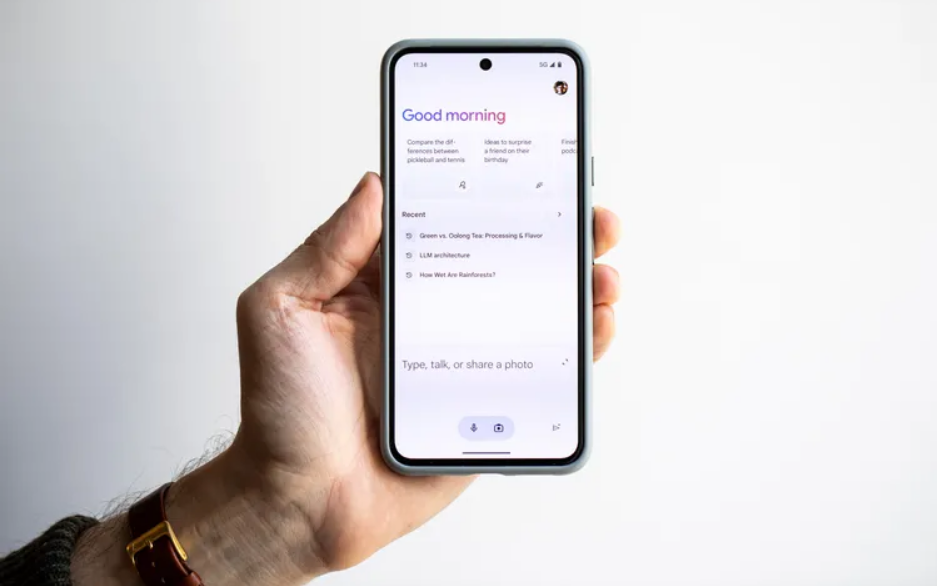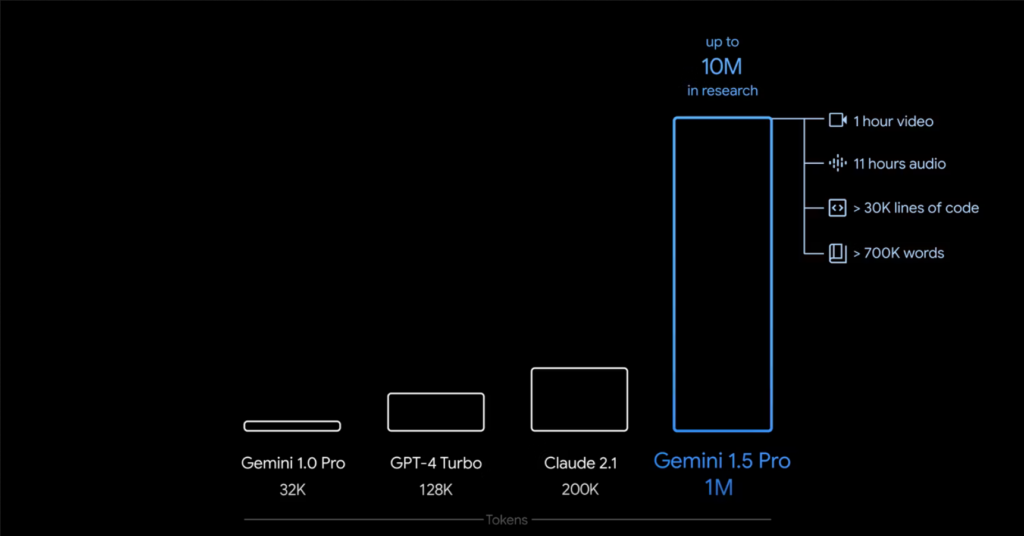Just a few weeks after the debut of Gemini, Google’s ambitious bid to dominate the AI arena, the tech giant has already unveiled its next iteration: Gemini 1.5. Available now for developers and enterprise clients, with a broader consumer release on the horizon, Google is doubling down on its commitment to position Gemini as a versatile tool for businesses and individuals alike.

Gemini 1.5 introduces a suite of enhancements over its predecessor, notably achieving performance parity with the previously top-tier Gemini Ultra, and surpassing Gemini 1.0 Pro in 87% of benchmark assessments. A key innovation in this update is the adoption of a “Mixture of Experts” (MoE) technique, which optimizes efficiency by activating only relevant portions of the model for each query. This methodology not only speeds up response times for users but also reduces operational demands for Google.
A standout feature of Gemini 1.5, as highlighted by Google CEO Sundar Pichai, is its significantly expanded context window, capable of processing up to 1 million tokens. This vast increase from GPT-4’s 128,000 and the original Gemini Pro’s 32,000 tokens enables the model to analyze and generate responses based on substantially larger datasets. Pichai simplifies the concept by comparing it to digesting “10 or 11 hours of video, tens of thousands of lines of code” in a single query.

The potential applications of such a large context window are vast, with Pichai playfully acknowledging the likelihood that the feature has been or will be used to dissect the entirety of the Lord of The Rings trilogy for continuity errors or the enigmatic character of Tom Bombadil. Beyond entertainment, Pichai envisions significant business implications, such as filmmakers querying the AI about potential critical reception of their movies, or corporations scrutinizing extensive financial records.
Initially, Gemini 1.5 will cater to the developer and business community via Google’s Vertex AI and AI Studio platforms. The plan is to eventually phase out Gemini 1.0, offering Gemini 1.5 Pro—with a 128,000-token limit—to the general public through Google’s standard channels, with the full million-token capacity as a premium option. Google is also carefully evaluating the model, especially in terms of safety and ethics, given its expanded capabilities.
This launch comes at a time when the competition in AI development is fierce, with companies worldwide deliberating between partnerships with Google, OpenAI, or other providers. OpenAI’s recent announcement of a “memory” feature for ChatGPT suggests a push into new domains, such as web search, indicating the dynamic nature of the industry.
Pichai remains philosophical about the rapid evolution of AI technology and its market implications. He predicts a future where the technical specifics of AI models fade into the background of user experience, much like the unnoticed processors powering our smartphones today. Yet, for now, the rapid pace of innovation keeps these details in the spotlight, reflecting a period of significant transition and interest in the underlying mechanics of these powerful tools.






